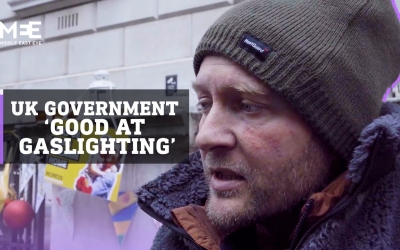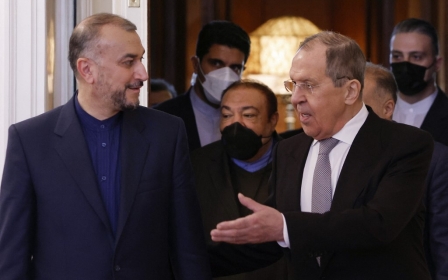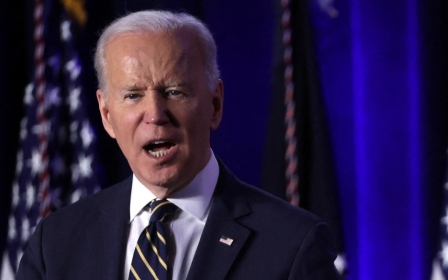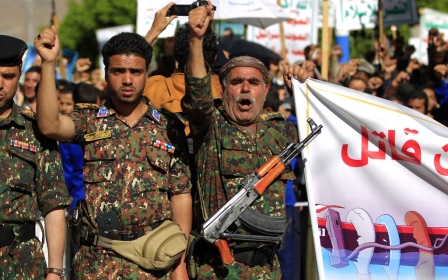Iran: Nazanin Zaghari-Ratcliffe release talks 'going to the wire', says Johnson
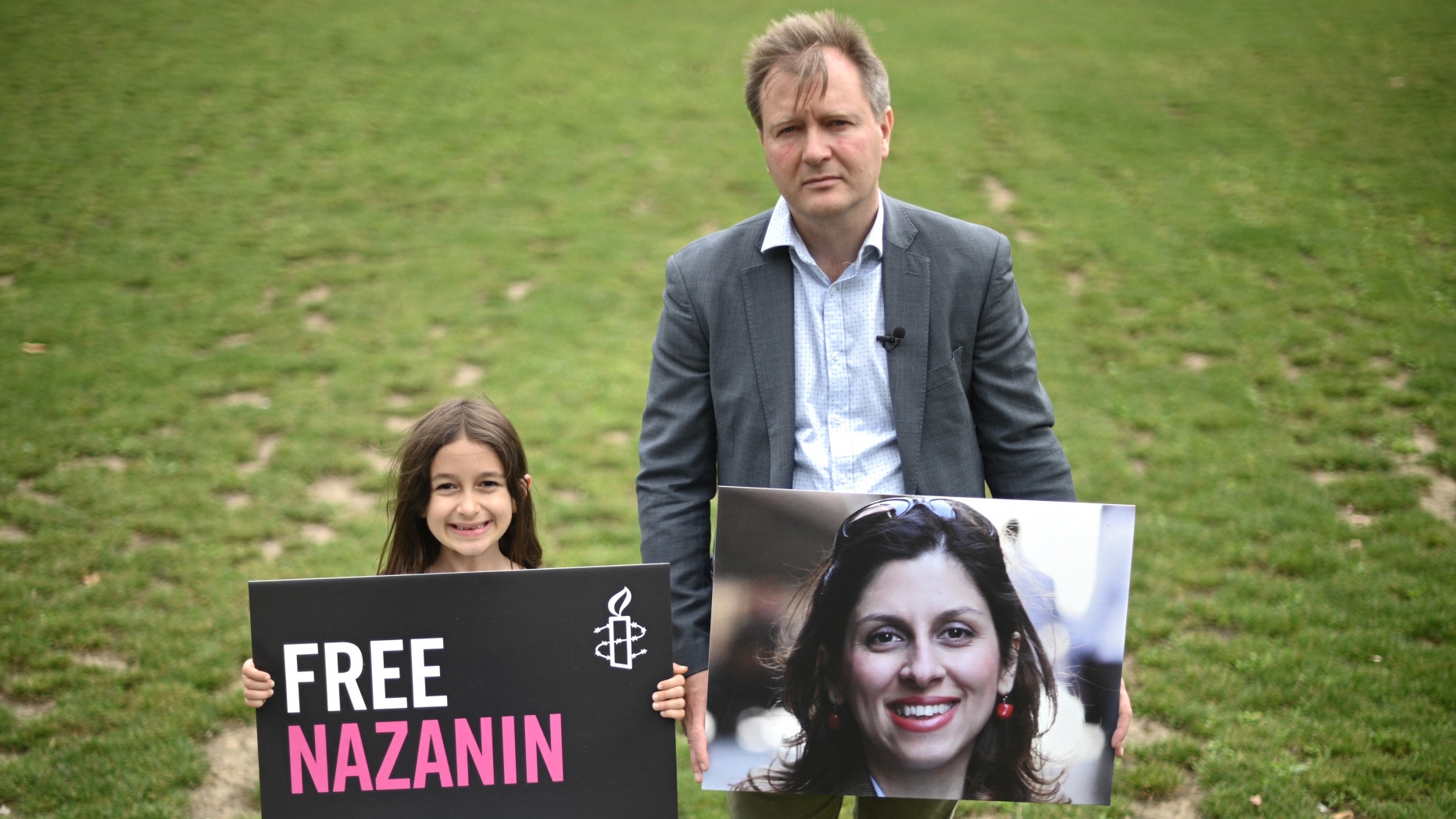
British Prime Minister Boris Johnson has said that negotiations for the release of Nazanin Zaghari-Ratcliffe, a British citizen imprisoned in Iran, are "going right up to the wire".
Speaking to journalists on Wednesday at the Emirates Palace hotel in Abu Dhabi, at the start of a controversial visit to the Gulf, Johnson confirmed that a negotiating team was in Tehran trying to secure the release of British nationals jailed there.
“It is true and it has been for a long time that we’re negotiating for the release of our dual nationals in Tehran," he said.
Besides Zaghari-Ratcliffe, Mehran Raoof and Anoosheh Ashoori are the two other known detained British-Iranian dual nationals. American-Iranian Morad Tahbaz also has British citizenship.
“There are some very sad cases, including Nazanin. I really don’t think I should say much more, I’m sorry, although things are moving forward," said Johnson. "Those negotiations continue to be under way and we’re going right up to the wire.”
Foreign Secretary Liz Truss told Sky News on Wednesday that the UK was working "extremely hard" to free British detainees in Iran.
"We've also made it a priority to pay the debt that we owe to Iran," she said. "But I can't say anything more than that, I'm afraid."
The number of foreign and dual nationals detained in Iran, mostly on espionage charges, is unknown. One 2017 estimate said there were at least 30 such cases.
Many prefer to keep a low profile, fearing publicity will hamper negotiations for their release.
Passport returned
On Tuesday, Zaghari-Ratcliffe had her passport returned in Iran, as reports suggested her release from house arrest may be imminent.
Tulip Siddiqi, MP for Hampstead and Kilburn - where Zaghari-Ratcliffe lived in the UK prior to her detention in Iran in 2016 - tweeted that Iranian and British officials were negotiating the next step.
"I am very pleased to say that Nazanin Zaghari-Ratcliffe has been given her British passport back," she wrote.
"She is still at her family home in Tehran. I also understand that there is a British negotiating team in Tehran right now."
Earlier on Tuesday, Iranian journalist Sara Massoumi claimed in a tweet that Zaghari-Ratcliffe's release, and that of another detainee, was "imminent" and that a contentious £400m ($521m) debt owed by the UK to Iran had been paid.
Zaghari-Ratcliffe's employer, the Thomson Reuters Foundation, quoted her lawyer, Hojjat Kermani, as saying: "I am hopeful that we will have good news soon."
Debt negotiations
Zaghari-Ratcliffe, a project manager with Thomson Reuters, was arrested in 2016 as she was leaving Iran after taking her then 22-month-old daughter to visit her family and subsequently jailed for five years after being convicted of plotting to overthrow the government.
Then in April last year she was sentenced to another year's imprisonment over her participation in a rally outside the Iranian embassy in London in 2009.
She was freed from prison with an electronic tag in March 2020 due to the Covid-19 pandemic.
Zaghari-Ratcliffe's husband, Richard Ratcliffe, has insisted that the case against his wife is a sham and is being used as a bargaining chip by Tehran to secure the debt payment from the UK.
Shortly before the 1979 Iranian revolution that overthrew Shah Mohammad Reza Pahlavi, the British government struck an arms deal with the shah to sell more than 1,500 Chieftain battle tanks and 250 repair vehicles to Iran.
Iran paid £600m ($795m) for the tanks in advance, but having delivered only 185 tanks, Britain refused to deliver the remaining equipment when the shah was deposed.
The international court of arbitration in The Hague ordered Britain to pay the debt in 2001, a ruling upheld in 2009.
However, the two governments have been locked in a prolonged legal battle in the British courts over the exact sum owed and whether or not the UK should pay interest on it.
Middle East Eye propose une couverture et une analyse indépendantes et incomparables du Moyen-Orient, de l’Afrique du Nord et d’autres régions du monde. Pour en savoir plus sur la reprise de ce contenu et les frais qui s’appliquent, veuillez remplir ce formulaire [en anglais]. Pour en savoir plus sur MEE, cliquez ici [en anglais].


